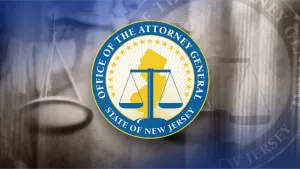The law which disbanded the troubled New Jersey Society for the Prevention of Cruelty to Animals may have had an unintended consequence: stripping municipal Animal Cruelty Investigators of power. But some say that’s necessary to clean up a broken system and prevent former NJSPCA officials from reinserting themselves into it.
Carol Tyler has been a certified Animal Cruelty Investigator since 2001. Her company, Tyco Animal Control, is contracted with 25 North Jersey municipalities. But on Feb. 1, ACIs will no longer exist in New Jersey. ACIs can still be animal control officers, but they’ll no longer have law enforcement authority or the ability to conduct animal cruelty investigations.
“There’s no reason for them not to have faith in us,” Tyler says. “The law was created because of lack of faith in another group.”
That other group was the NJSPCA, disbanded by state lawmakers after a series of Kane In Your Corner investigations exposed financial irregularities and a backlog of uninvestigated cases.
Now-retired Sen. Raymond Lesniak credited Kane In Your Corner with inspiring his legislation, and the NJ State Commission of Investigation branded the group “a haven for wannabe cops.”
RELATED: KIYC: Future of NJSPCA unclear as local agencies take over responsibilities
RELATED: KIYC: Counties ask for more time to fully replace troubled NJSPCA
RELATED: KIYC: Counties ask for more time to fully replace troubled NJSPCA
Under the new law, each town had to appoint a Humane Law Enforcement officer to investigate animal cruelty complaints. Since HLEOs are also responsible for enforcement actions like serving search warrants and making arrests, the Police Training Commission decided that they would be required to get six to eight weeks of police academy training.
Tyler says she believes that this requirement is unnecessary.
“I certainly don't need to learn to jump over walls or run around with 20-year-olds,” Tyler says. “If you make this training the only way into this, I think you're going to create a whole new generation of wannabes.”
Glen Rock Police Chief Dean Ackerman asked the PTC for a waiver, so he could use Tyler as his HLEO without the additional police training. The state turned him down. He says he still thinks the arrangement would have worked. “They are the experts in investigating animal issues; we can deal with the situation that requires an armed law enforcement officer,” he says.
RELATED: Christie signs bill stripping NJSPCA of its power
RELATED: KIYC: What’s next for the NJSPCA after being stripped of authority?
RELATED: KIYC: What’s next for the NJSPCA after being stripped of authority?
But Collene Wronko, an animal welfare activist whose efforts were instrumental in toppling the NJSPCA, says she believes the state is making the right call.
She says “I think it's a much better system now than we had before” because “I can call, 24-7, 365 days a year, anytime of the day or night, and talk to a police officer”.
Wronko also contends that giving waivers to people like Tyler would also open the door to officials from the NJSPCA, the very people the state was trying to get rid of. “They could infiltrate the whole system again, and we’d wind up with the same system we had before,” she says.
More from News 12

23-year-old woman dies in three-vehicle crash in Vineland
1:17

Warmer air is on the way this week in New Jersey

ICE arrests 2 in Union City

State AG charges man for soliciting minor, possessing 'ghost' gun
1:57

Cranford resident builds ice cream truck out of snow, raises thousands for charity
